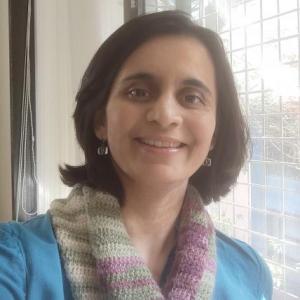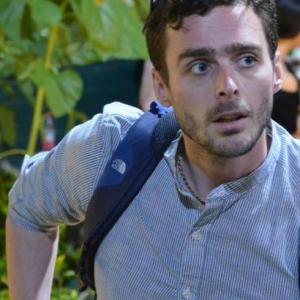Short description:
PhD in Geography with a MSc. in Environmental Monitoring, Modelling and Management at King’s College London. 8+ years experience in teaching and applied research. With current affiliation as Visiting Researcher at the International Center for Tropical Agriculture (CIAT), I have been involved in several projects supported by geotechnologies for decision making in environmental and agricultural settings at multiple scales. Confident in the use of a variety of Geographic Information Systems and Remote Sensing software and a strong understanding of statistics, machine learning, spatial analysis and the automation of complex and large data tasks using cutting-edge technologies (e.g. cloud-computing). Currently, I am supporting the Mapping Agency in Colombia, Instituto Geografico Agustin Codazzi, with the assessment of novel geospatial information technologies for the Multipurpose Cadastre policy.
Short description:
I am a Professor of Public Affairs at Indiana University’s O’Neill School of Public and Environmental Affairs. I am interested in understanding the ways in which the design and delivery of public programs influence disparity in the outcomes of those programs and inequality more broadly.
Short description:
Claudia N. Avellaneda is an Associate Professor in the O’Neill School of Public and Environmental Affairs at Indiana University. She specializes in governance and public management in developing countries, with an emphasis on local and subnational governments in Latin America. Specifically, she investigates the drivers of municipal and provincial performance by focusing on the role of mayors' and governors’ education, experience, networking, and political support on social service delivery, public finances, tax collection, and decision-making.
Short description:
Rama Pal is Associate Professor of Economics at the Department of Humanities and Social Sciences, IIT Bombay. Her primary research area is Development Economics with focus on inclusive development. Currently, she is working on multidimensional development, health and education inequality and human capital. Her research work is published in reputed international academic journals including Economic Modelling, Journal of International Development, Oxford Development Studies, European Journal of Development Research, International Journal of Health Care Finance and Economics, and others have published her research papers.
Short description:
I am an economist with interests in economics of armed conflict and security studies, economic policy and foreign aid. I completed my Ph.D. in Economics at Royal Holloway, University of London, and currently I am employed as an Associate Professor of Economics at Coventry University. I am also an Associate Member of the Research Centre for Financial and Corporate Integrity at Coventry.
My research often incorporates elements of economics and political science, for example, I studied the sensitivity of public opinion to war-related costs and terrorism. My recent projects also analyse the impact of terrorism and conflict on foreign aid allocation, targeting of civilians in war, economic sanctions, social trust in urban studies.
Short description:
Suzanne Clisby is Professor of Gender Studies in the Centre for Global Learning, Education and Attainment at Coventry University. She is currently Co-Director of the RCUK GCRF Global Gender and Cultures of Equality (GlobalGRACE) Project (2017-21) (globalgrace.net) and was the Director of the Horizon 2020 Marie S. Curie Gender and Cultures of Equality in Europe (GRACE) Project (2015-19) (graceproject.eu). She is an Expert Advisor for the EU-funded GEMMA programme and the GCRF-funded None in Three Project and an Editor of the Journal of Gender Studies (Routledge, Taylor & Francis). She delivers gender analysis training for the Gender Equality Studies and Training programme at the University of Iceland and has been visiting scholar at the Universities of Granada (Spain), Oviedo (Spain), Rutgers (USA), INTEC (Dominican Republic), Peshawar (Pakistan), Haryana (India) and Dar es Salaam (Tanzania). Her research focuses on gender, anthropology and development in both UK and international contexts. In Gendering Women: identity and mental wellbeing through the lifecourse (2016, Policy Press) she provides a materialist feminist analysis of the symbolic, structural and visceral violence of everyday encounters with constructions of gender. Other recent edited volumes include Theorising Cultures of Equality (2020, Routledge) and Gender, Sexuality and Identities of the Borderlands: Queering the Margins (2020, Routledge).
Short description:
I have more than 14 years of teaching experience both at undergraduate and postgraduate (MBA/MPA) levels at different universities in the United Kingdom, Australia and Bangladesh. I have completed Ph.D. in Accounting and Corporate Governance from Macquarie University, Australia and previously I have completed Master of Philosophy (M.Phil), Master of Business Administration (MBA), Bachelor of Business Administration (BBA) from the University of Chittagong; Bangladesh.
I have got excellent teaching satisfaction rating by the students in Australia and Bangladesh. I have a keen interest in research, publications, and presentations as well. I have 17 papers published and four papers under the publication process in International and professional journals. I have presented seven papers at different international conferences in Australia, Scotland, Malaysia, Thailand, and Fiji. I have supervised 7 Master Dissertations.
I am highly interested in teaching at Bachelor and Master levels and supervising at the same. I was one of the initiators of introducing Accounting as a major discipline at IIUC, where I played the leading role. I was responsible for curriculum designing, teacher selection, counseling to both teachers and students. I played a pioneering role in creating a research environment among the students and also a source of research motivation among colleagues.
I work as the Convener of the Organizing Committee for Organizing Accounting Software Training, Pathways to Professional Accountants, Study tours, Industrial tours for the students. I also served as the President of Business Club, Department of Business Administration, International Islamic University Chittagong. The main purpose of the Club is to develop the extra-curricula qualities among the students.
I am highly interested in serving at a University having excellent research and teaching environment which will help me in designing and developing my Career.
Short description:
Research fellow based at the University of Stavanger. Primarily teaching in the fields of Environmental law and Energy Transitions, my doctoral research explores the link between the development of Geoengineering, its regulation, and its effect on the participatory rights for Arctic indigenous peoples.



